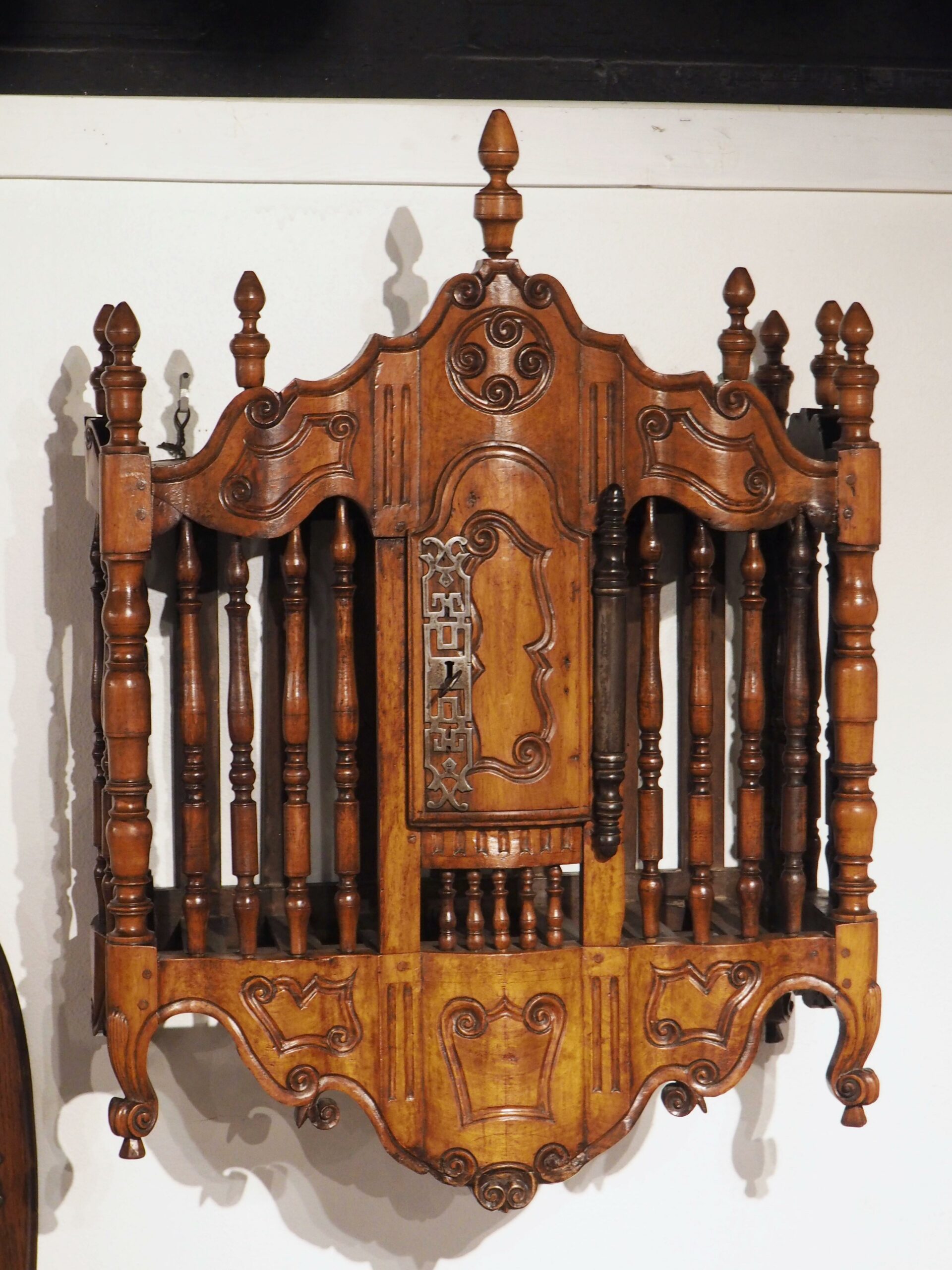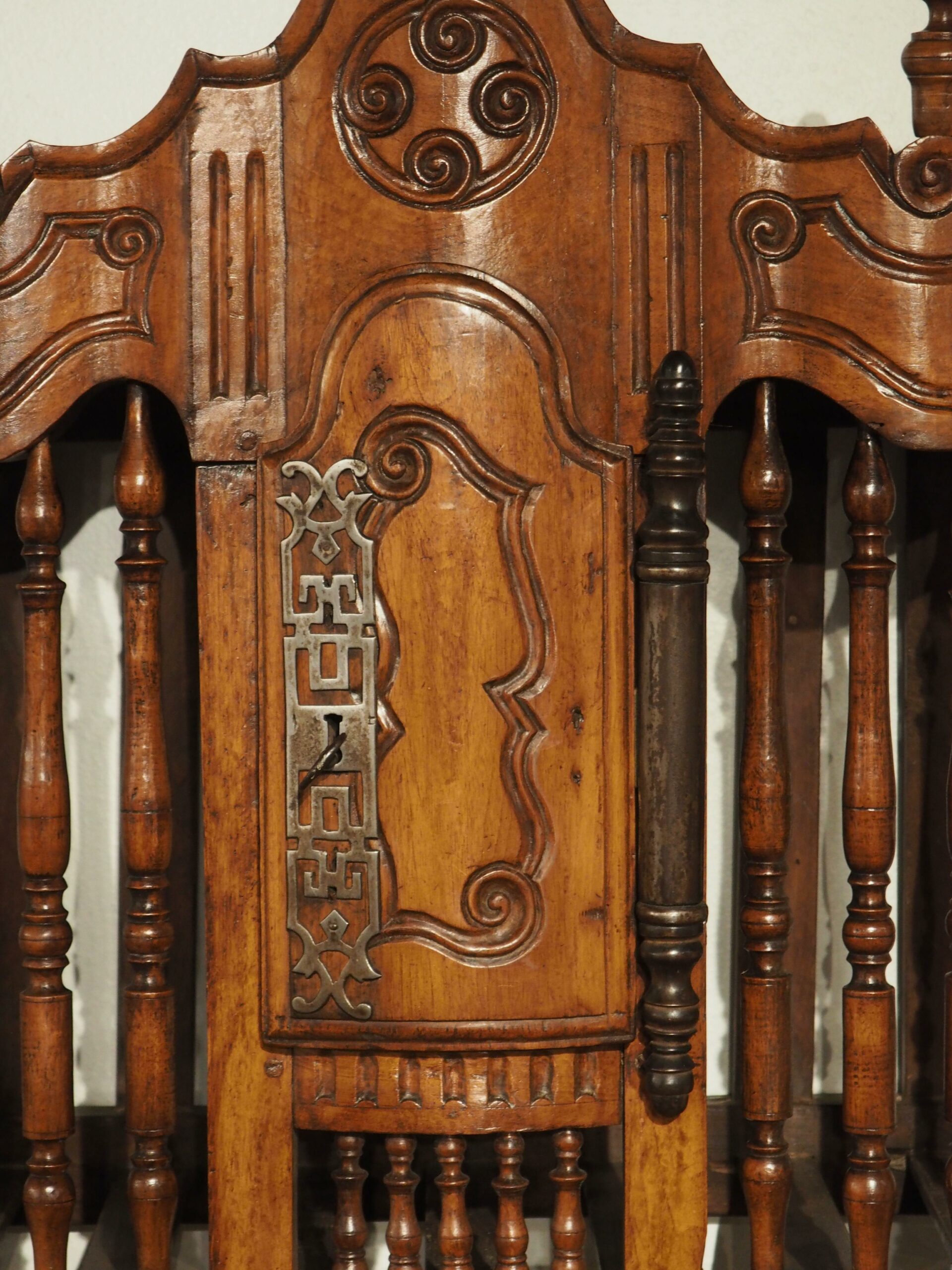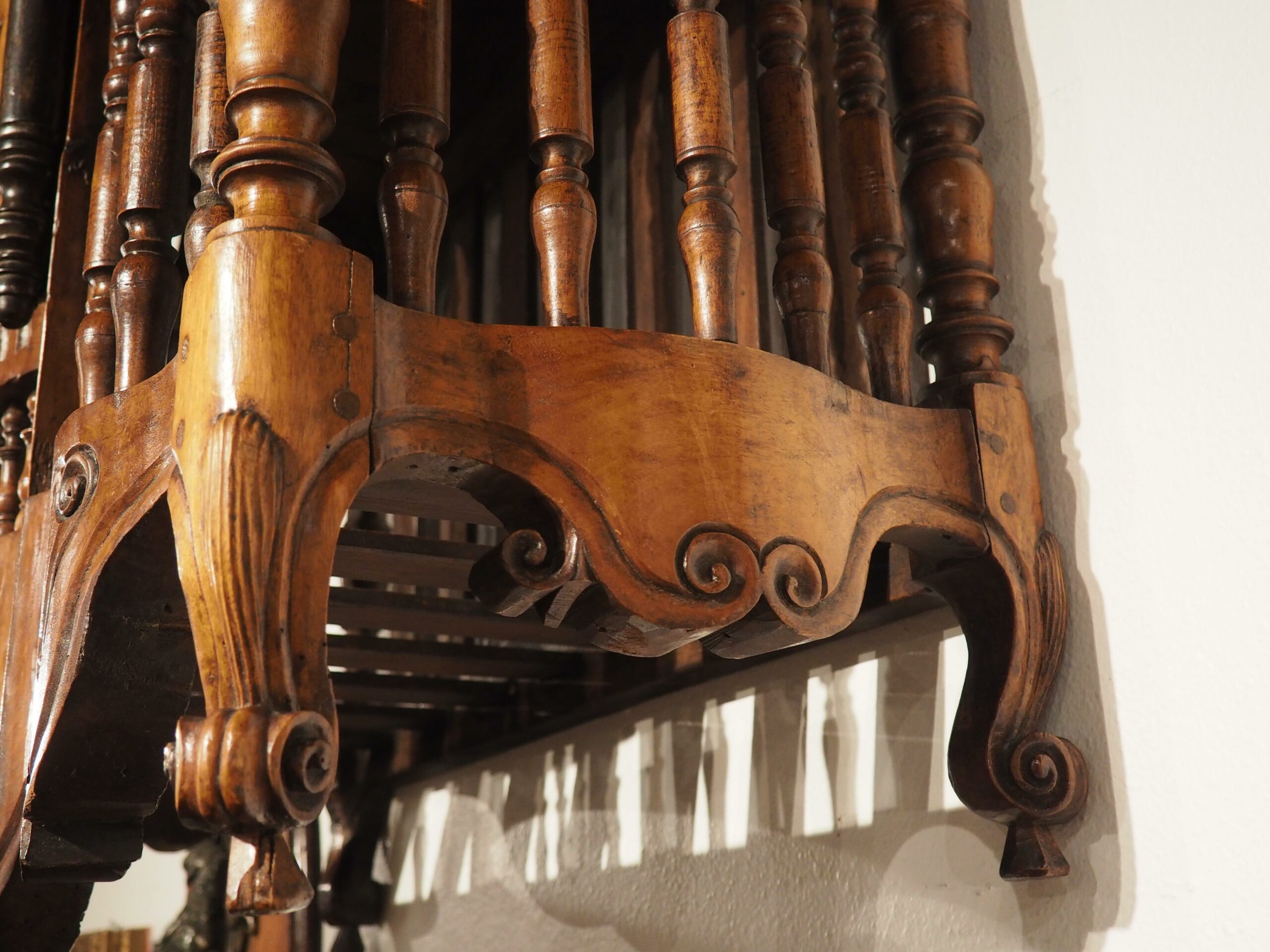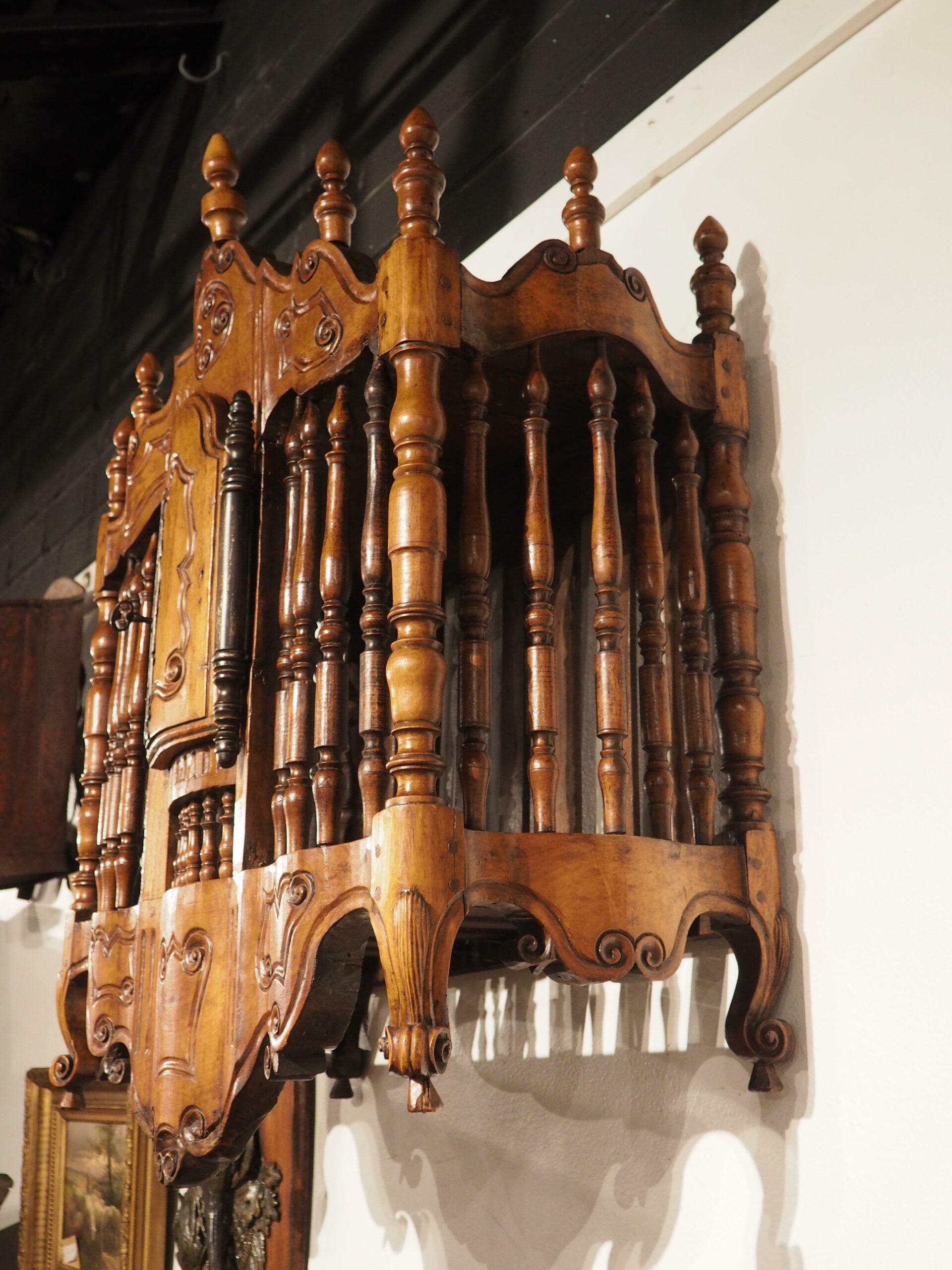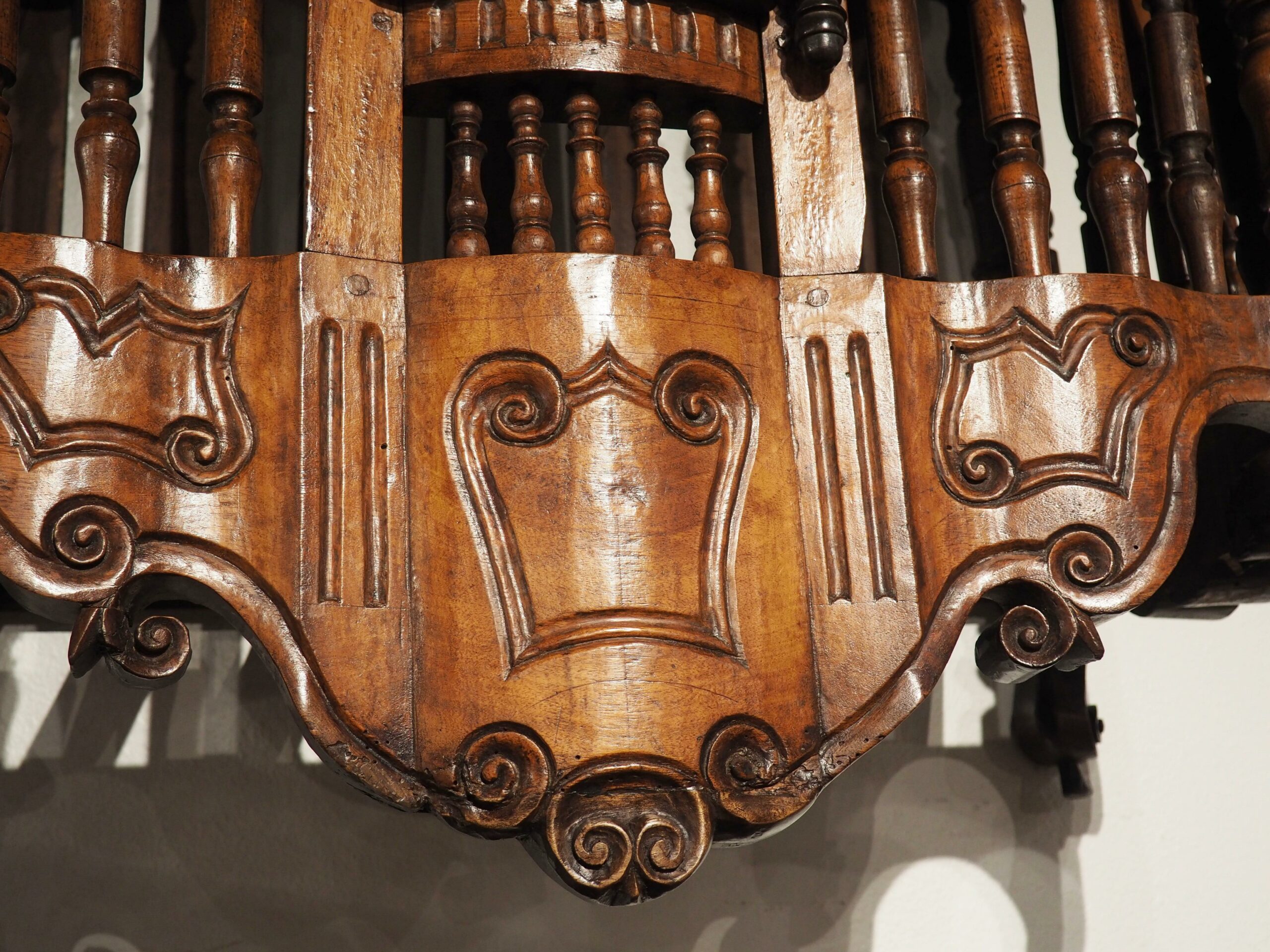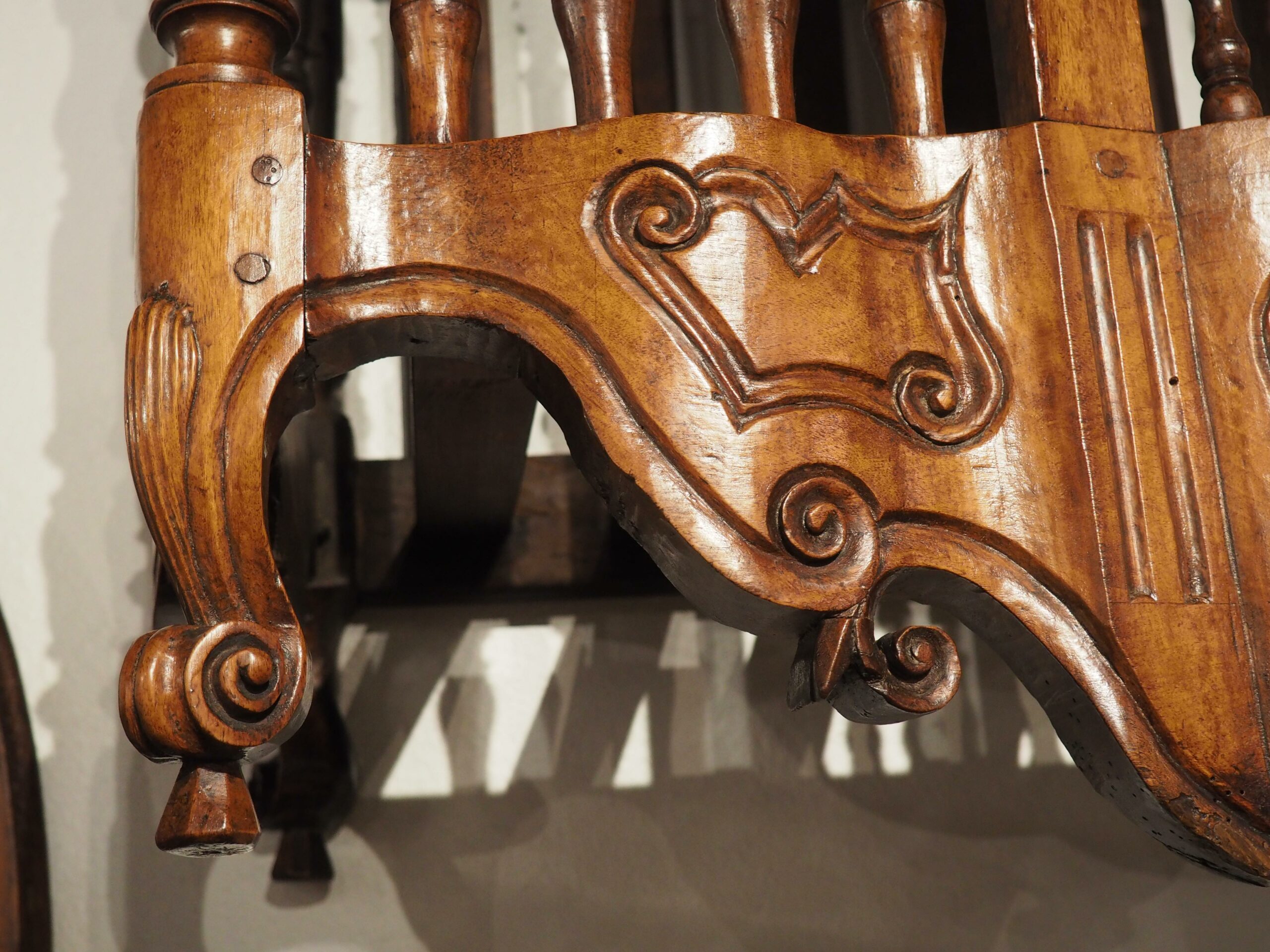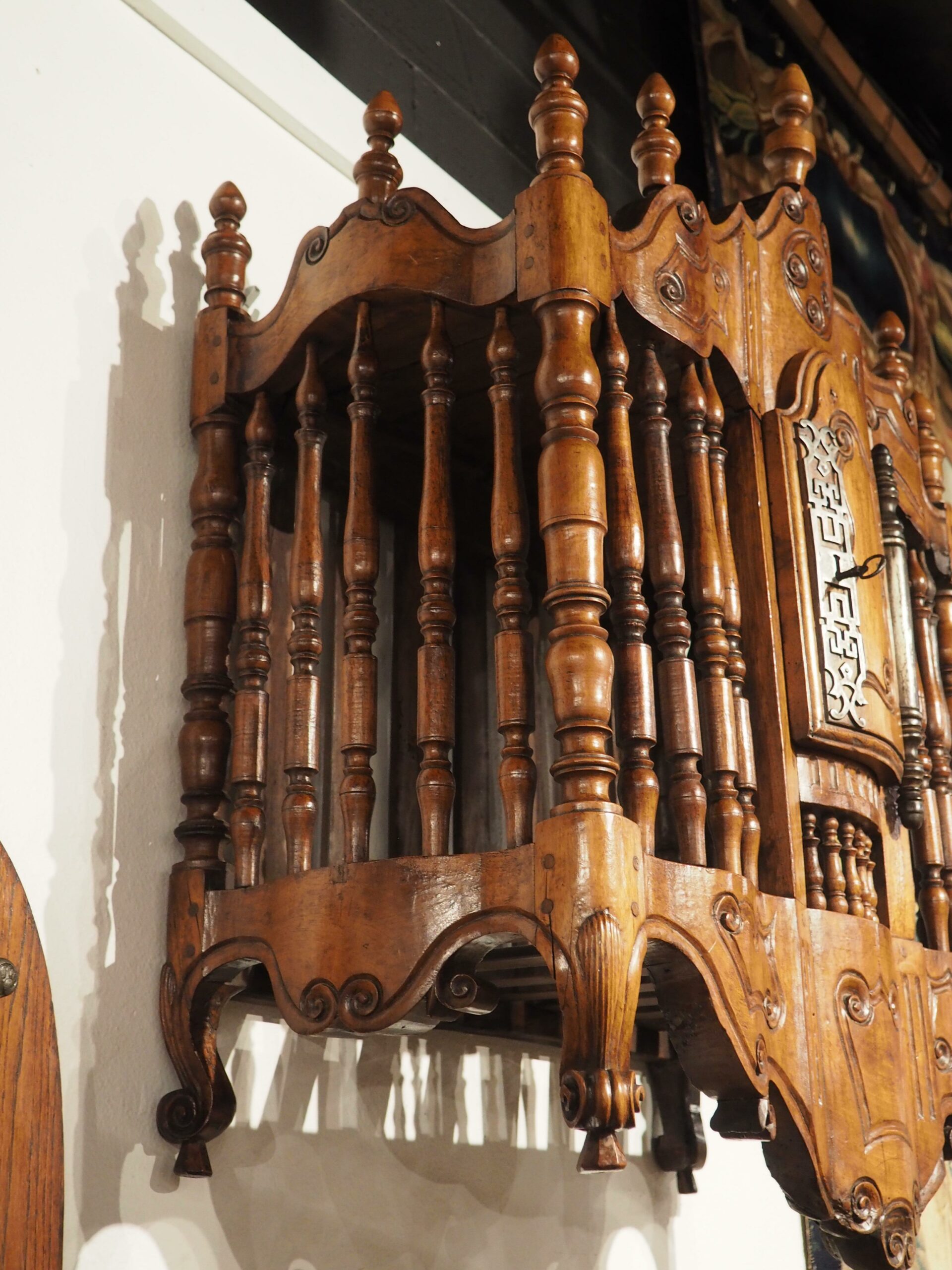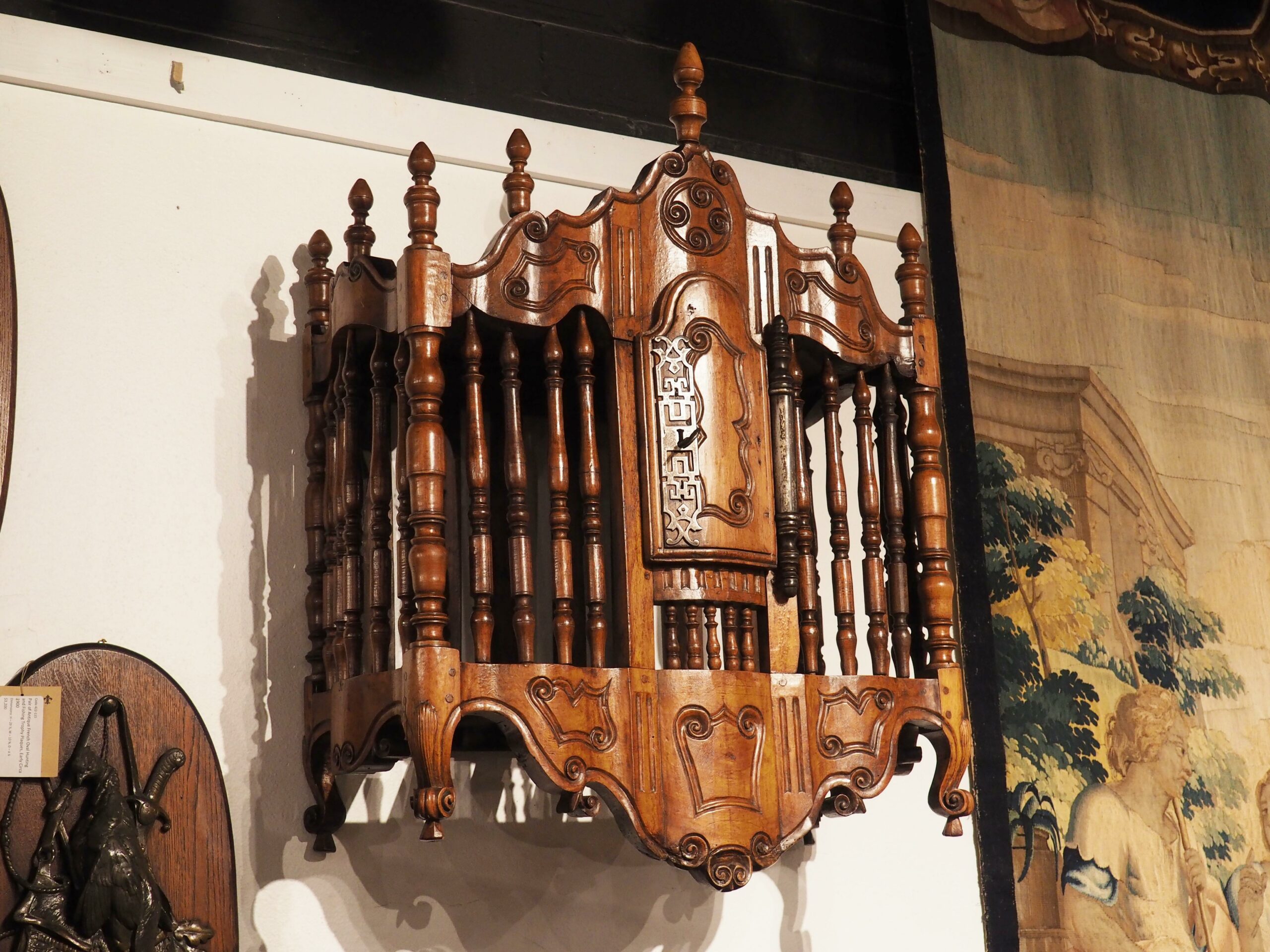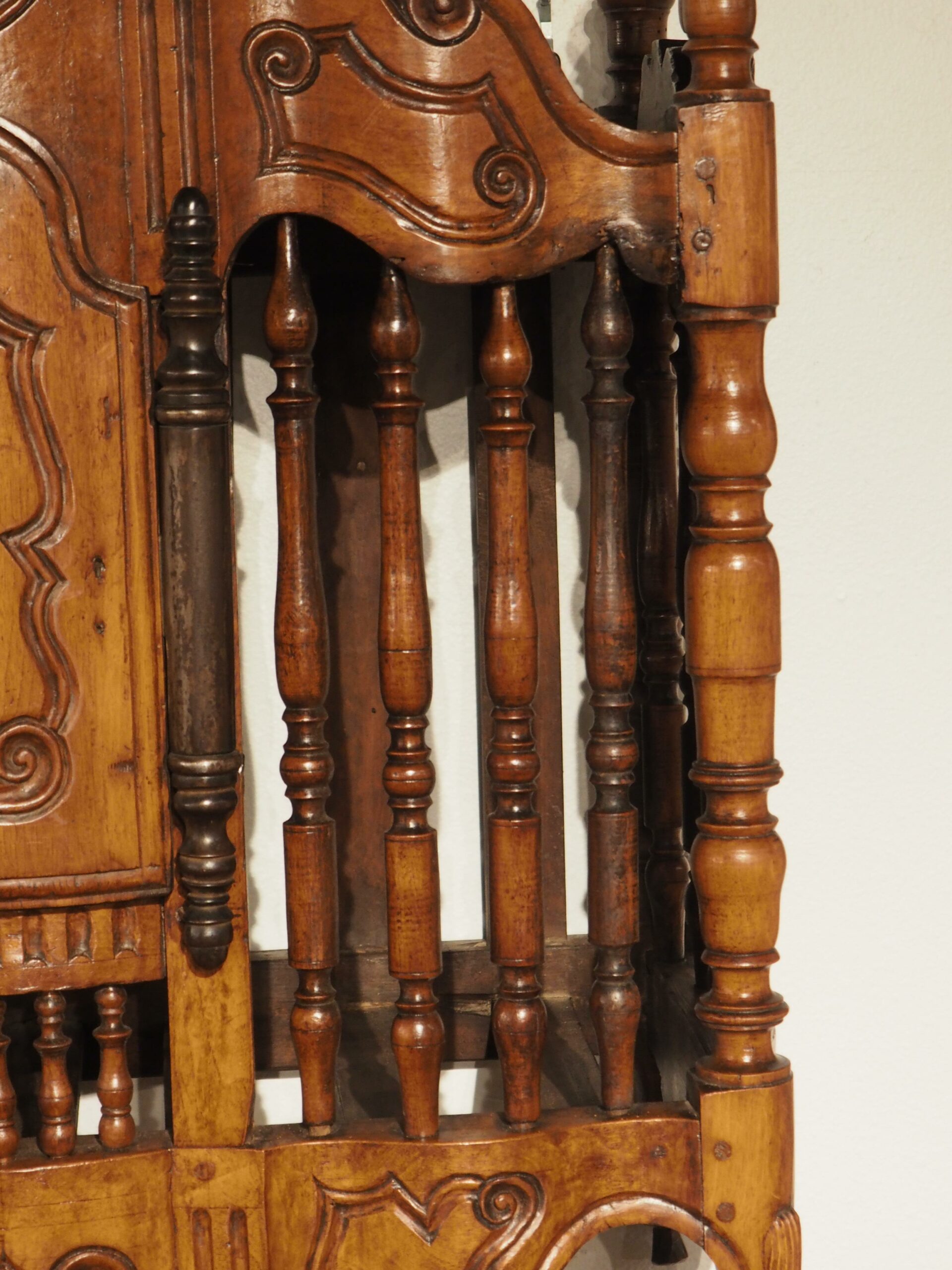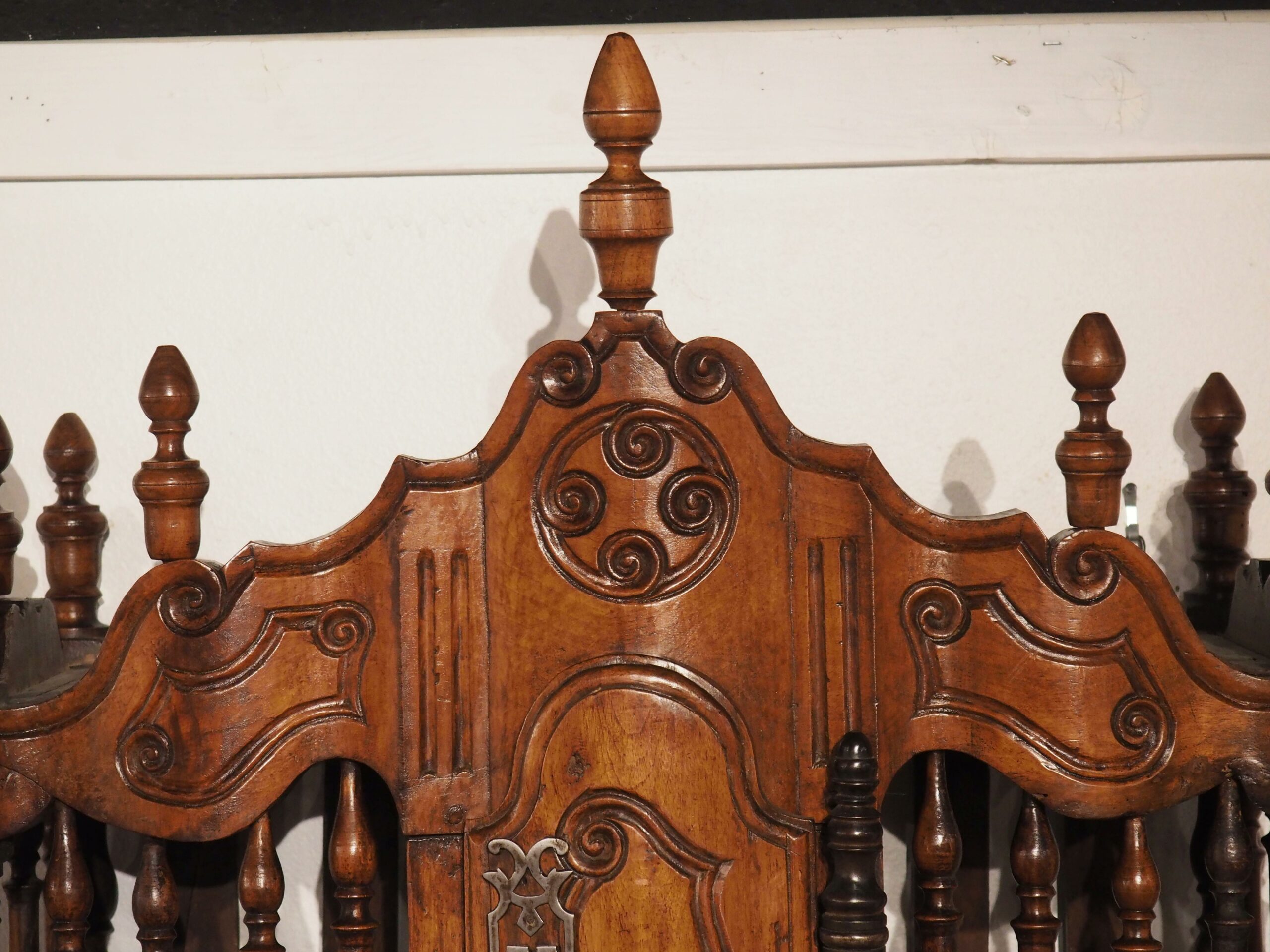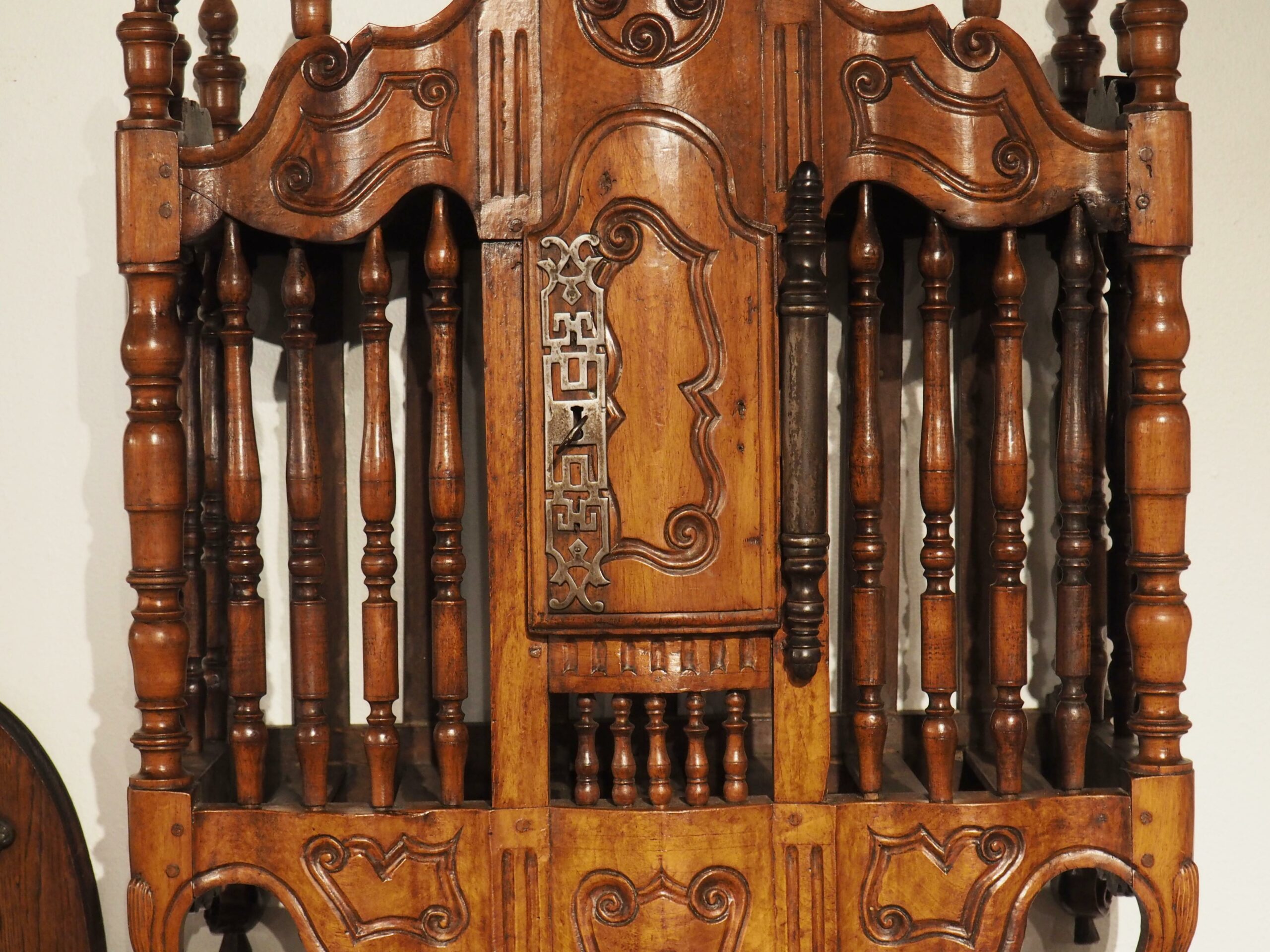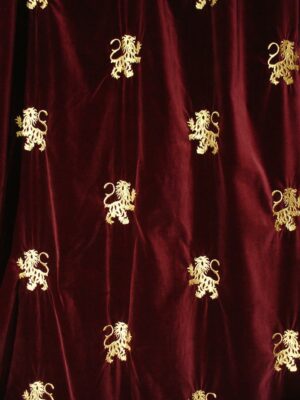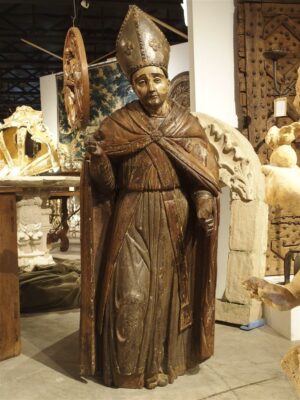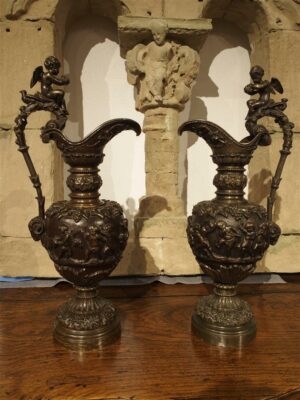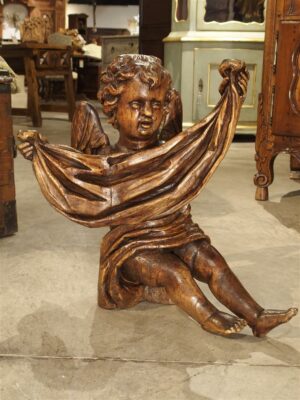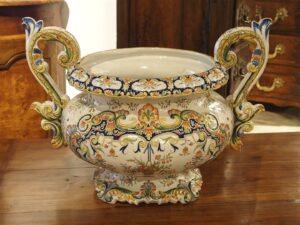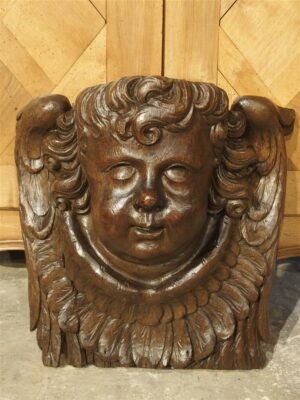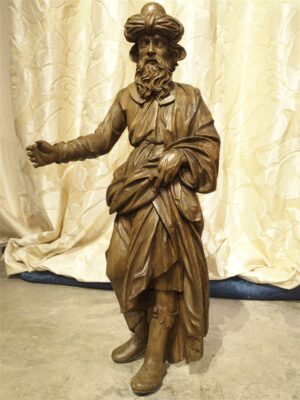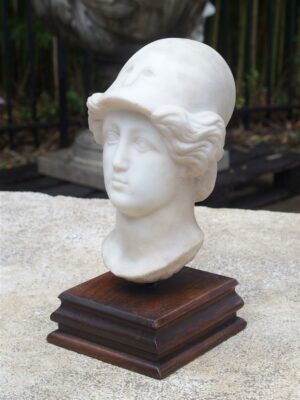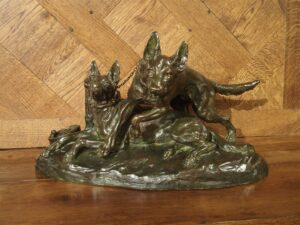Arguably one of the most recognizable pieces of furniture to emerge from the historical French province of Provence, this panetiere “bread safe” was hand-carved in walnut in Fourques, circa 1760. The turned baluster forms that comprise most of the front and the sides are definitively Provincial, as are the four small volute scroll feet. Notice how the ornately scrolled apron with asymmetrical recessed carvings hangs down lower than the feet, indicating that this particular panetiere was designed for a wall installation (sometimes the panetiere would sit on the feet on top of a petrin, which was a kneading station that often would have been carved to match the panetiere).
Nine turned finials of various heights sit on top of the highly shaped crest that mirrors the apron with its scrolled moldings and asymmetrical embellishments. The bombe door has a much larger disproportionate carving that is partially obscured by the pierced key plate (for the functioning lock).
During the 18th century, panetieres were used to keep bread safe from children and pets, until it was ready to be served at the table. Often considered status symbols, the more affluent households would have finely carved pieces, such as our walnut panetiere from Fourques. Today, panetieres are often seen as decorative wall-mounted accessories, although they could be used in the kitchen or bar area to store aperitif and wine bottles.
CONDITION: Very good antique condition, with light wood worm damage resulting in minor losses. Minor rubs and old repairs, specifically to the finials. All wear is commensurate to age and use.


